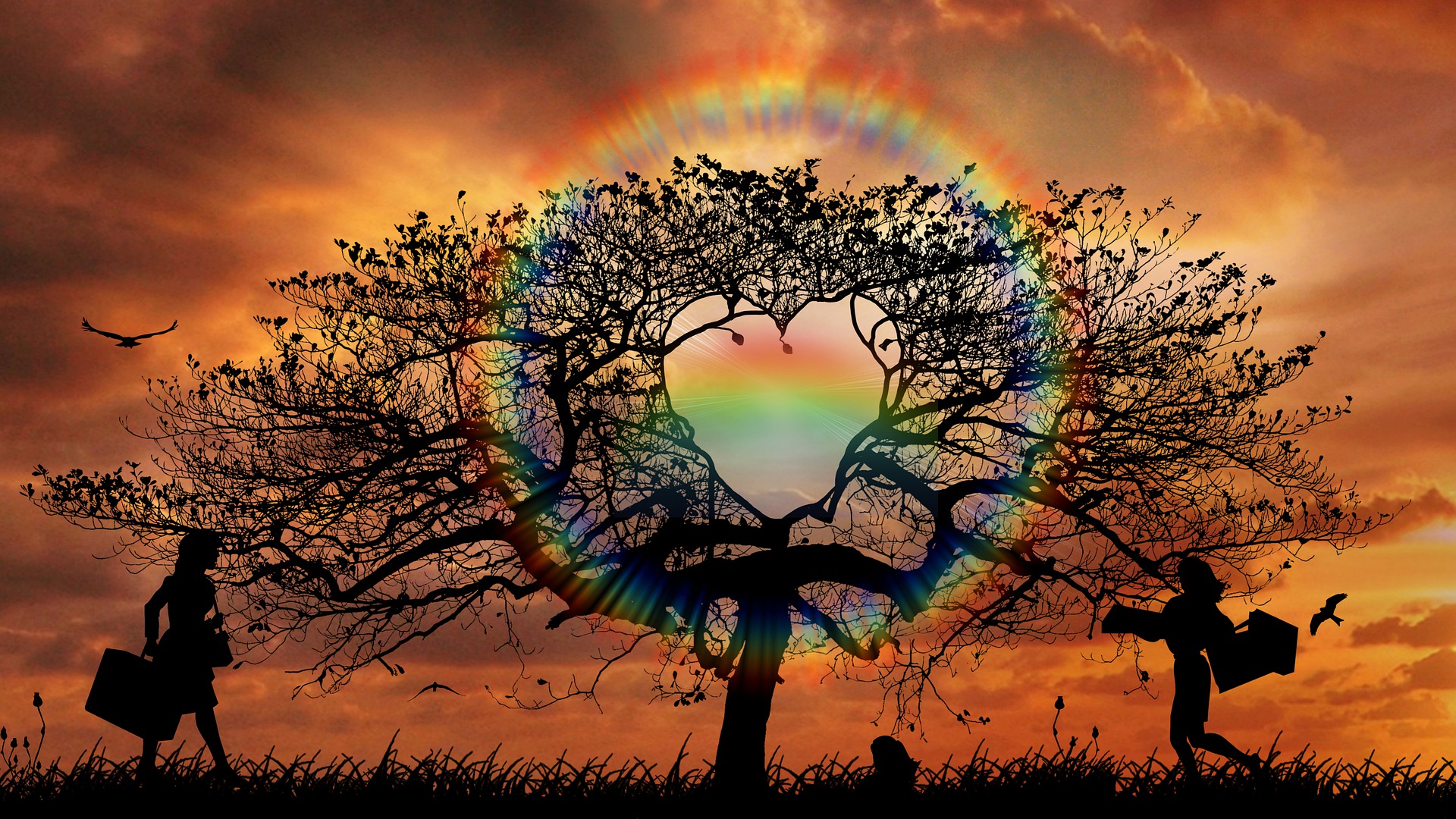Love
By Samuel Taylor Coleridge
Introduction
One of Coleridge’s most exquisite and captivating poems is “Love.” The poem “Love” is an excerpt from Genevieve’s tale, “Tale of the Dark Ladie.” The poet created the fictional Genevieve in this poem, whom he admired. In the year 1800, Coleridge relocated to the Lake District. As his marriage broke down, he fell deeply in love with Sara Hutchinson, who would later become Wordsworth’s sister-in-law. This is covered in “Love” and other poems by Asra. His opium use developed into an addiction that caused him significant harm. The poet expresses his love for Genevieve in this poem, but she rejects him. It is a creation of the poet’s imagination. She has tender, gentle feelings about what transpired. The poet does a good job of accurately and in-depth describing them. This poem demonstrates many of Coleridge’s poetry’s best qualities. The poet does a fantastic job at describing the surrounding environment. The poem contains some powerful and intriguing words and images.
About Samuel Taylor Coleridge
During his lifetime (1772–1834), romantic poet, critic, and thinker Samuel Taylor Coleridge produced a number of works. His father was the vicar of Ottery St. Mary in Devon. The youngest son, he was. His calling was to be a priest. He was a melancholy, daydreaming kid who was sent to Christ’s Hospital School in London when his young father passed away. There, among the young people who respected his classical study and his capacity to speak in a way that encouraged others, were Leigh Hunt and Charles Lamb, who would later go on to become an essayist. Between 1792 and 1794, Coleridge excelled in the classics at Jesus College in Cambridge. However, he joined the 15th Light Dragoons out of desperation due to the French Revolution, binge drinking, and a poor relationship. He passed away in 1834 and was buried in a church. The poetic, the critical, and the philosophical works of Coleridge can be divided into these three categories. They line up with the opening, middle, and closing lines of his poetry. Among his most well-known compositions are the poems “Kubla Khan,” “Christabel,” and “The Rime of the Ancient Mariner.”

Love
Oft in my waking dreams do I
The moonshine, stealing o’er the scene
Few sorrows hath she of her own,
I played a soft and doleful air,
She listened with a flitting blush,
I told her of the Knight that wore
I told her how he pined: and ah!
She listened with a flitting blush,
But when I told the cruel scorn
That sometimes from the savage den,
There came and looked him in the face
And that unknowing what he did,
And how she wept, and clasped his knees;
And that she nursed him in a cave;
His dying words—but when I reached
All impulses of soul and sense
And hopes, and fears that kindle hope,
She wept with pity and delight,
Her bosom heaved—she stepped aside,
She half enclosed me with her arms,
‘Twas partly love, and partly fear,
I calmed her fears, and she was calm,
Samuel Taylor Coleridge
The poem “Love” by Samuel Taylor Coleridge is one of his most interesting and beautiful works. He is a thinker, a critic, and a romantic poet. The poem is divided into twenty-four stanzas. Each stanza contains four lines. For his rhymes, the poet adopted the pattern abcb. Figures of speech, literary devices, and symbols are used throughout the poem. In this poem, the poet expresses his feelings for a woman named Genevieve.
The Opening Stanza
The author claims that the primary sources of love are thoughts, feelings, and pleasures in the first stanza of the poem. These emotions overflow a person’s body, and the poet claims that love is a divine emotion that must constantly be “nourished.” Over time, nothing has changed about it. The poem’s central theme is that love is a pure emotion.
Second Stanza
He claims that love is like a dream that you wake up from in the second line of the poem. He dreams happily as he snoozes on his horse close to the crumbling tower. He remembers and appreciates the happy moments.
The Third Stanza
In the third stanza of the poem, Genevieve, his “hope” and “joy,” also makes an appearance. The moon and the twilight light create a lovely scene.
The Fourth Stanza
Genevieve is seen in the poem’s fourth line listening to the poet’s song while leaning on a statue of a knight. After that, the poet or speaker narrates a poem about a knight who falls in love with a woman who doesn’t reciprocate. The woman declines the knight’s offer of love. Genevieve listens to the tale while remaining motionless and attractive in the waning twilight light.
The Fifth Stanza
The author claims that Genevieve is his hope and delight in the poem’s fifth stanza. To express his feelings, he repeats these sentences repeatedly. Genevieve has no issues of her own to deal with. She no longer experiences despair. The poet sings her lovely songs to cheer her up, but she feels depressed and restless when she hears them.
The Sixth Stanza
He begins delivering a depressing tale that is appropriate for the ancient ruins where they are in the poem’s sixth stanza.
The Seventh Stanza
He praises Genevieve’s deeds in the poem’s seventh stanza. Although she is aware that the poet is focusing on her face, she maintains her poise by keeping her eyes down. He resumes singing his tale while seeing how shy she appears and the expression on her face.
The Eighth Stanza
The poet begins to describe the valiant Knight who carried a shield bearing a mark indicating his heritage in the eighth stanza. The woman the Knight loves, the “Lady of the Land,” is the object of his ten-year pursuit. She doesn’t respond to the knight despite his love for her. The knight thus gets lost in the jungle for ten years. He is passionate about love, and the poem implicitly demonstrates how much he adores Genevieve.
The Ninth Stanza
The poet describes to Genevieve how the knight struggled because he loved the Lady of the Land in the poem’s ninth stanza. The poet’s selection of the song, the lines, and the phrases revealed how much he loved Genevieve. Since the poet is in the same predicament as the knight, he uses this as a means of expressing his love for Genevieve.
The Tenth Stanza
The poem’s tenth stanza describes Genevieve’s lovely look. He keeps staring at her face, which makes her appear shy.
The Eleventh Stanza
In the eleventh stanza, the poet describes how the Knight wanders aimlessly across mountains and forests until he finds a spot to rest after the “Lady of the Land” rejects his approaches.
The 12th Stanza
The author describes the Knight’s predicament to Genevieve in the song’s eleventh stanza. He laments being rejected and how this causes him to stray dangerously close to animals, dark regions, and occasionally open grassy spaces.
The 13th Stanza
The poet describes how the knight keeps thinking about the “Lady of the Land,” whom he still loves, in the thirteenth stanza. Then, to his horror, he realises that the lovely angel he had just seen was actually a fiend—a wicked spirit or even the devil.
The 14th Stanza
The poet describes how the knight stumbles onto “a homicidal bunch” of nasty folks while out and about in the fourteenth stanza. When he pursues this threatening bunch, he learns that they are attempting to rape the “Lady of the Land,” which would be worse than having her killed. He fights in order to protect the lady he loves, but he also gets harmed.
The 15th Stanza
The woman who now weeps and clings to the Knight’s knees as if praying for his pardon for how she treated him earlier is described by the author in the poem’s fifteenth line. She sobs and thanks him for saving her. He recalls how she previously rejected him, and she now needs to accept that he has changed. She now has to cope with the fallout from his new, negative sentiments for her, and she makes an effort to get rid of them.
The 16th Stanza
The author observes that the woman and the knight enter a cave, where she takes care of him, in the sixteenth stanza. The knight is ill and close to passing away. The poet’s song is a sorrowful story even though the man alters his feelings for the woman.
The 17th Stanza
The poet recounts the knight’s final words in the seventeenth stanza. The poet sees Genevieve disturbed at this time and decides to stop telling his story in order to avoid upsetting his love too much.
The 18th Stanza
The poet’s story profoundly impacted Genevieve, a humble woman. The sorrowful story, the music, and the waning twilight light all impacted his lady love deeply. Genevieve’s soul and senses are profoundly impacted by this event in the poem’s 18th line.
The 19th Stanza
The poem’s subsequent section, the nineteenth stanza, is where Genevieve’s worries take over. The poet intended for her to imagine what it would be like to be the Lady of the Land. She is more open to letting him love her now.
The 20th Stanza
She sheds happy and sorrowful tears at the 20th stanza. She is too hesitant and ashamed to express her feelings, but the poet is delighted when she speaks his name at last.
The 21st Stanza
She runs shyly but boldly into her lover’s arms in the next stanza, number 21, giving him the response, he was looking for.
The 22nd Stanza
Genevieve creates a dramatic situation in the twenty-second stanza by encircling him in her arms, drawing him in, and gazing into his eyes.
The Final Stanza
The poet assures Genevieve in the final stanza that they will not suffer the same fate as the Knight and the Lady of the Land. This is his ideal conclusion. Genevieve confesses her love to him once more, and the poet joyfully informs the reader that this is how he met his lovely bride.

